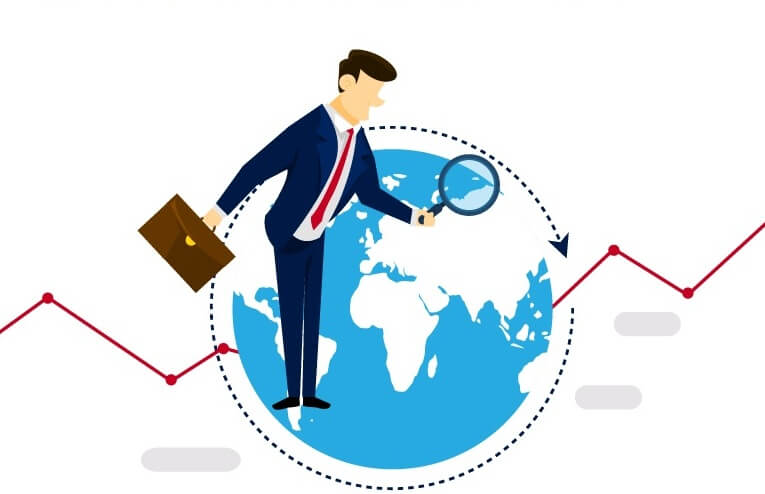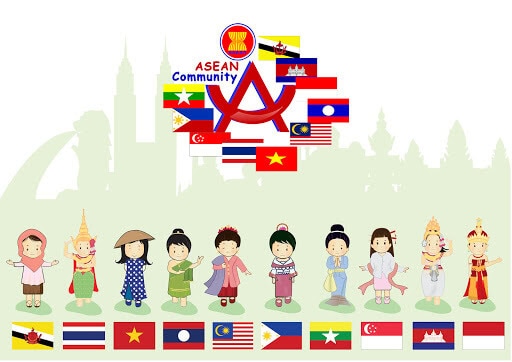Southeast Asia is a tropical region in the Asian continent. Several countries in the region are driving the world's economic growth, encouraging Western companies to do business in Southeast Asia.
Many developed countries all over the world are keen to do business in Southeast Asia as it offers a number of business opportunities that are still untapped. Most of the developing countries in Southeast Asia are members of ASEAN or the Association of Southeast Asian Nations. As a single community, the member states offer investors various opportunities to reap high returns on their investments.
It is important for business investors from North America and Europe to know and understand the prerequisites, regulations and laws of each country before they start doing business in this region.
Geographically, Southeast Asia is divided into two groups: islands and mainland. In the first group are Brunei, East Malaysia, East Timor, Indonesia, Philippines and Singapore. Cambodia, Myanmar or Burma, Laos, Thailand, Peninsular Malaysia and Vietnam are in the second group. Politically, there are 11 states, as East Malaysia and Peninsular Malaysia are grouped into one. Out of 11, only East Timor is not a member of ASEAN.
Note: Things to Know About Southeast Asian Customers
For business investors, this means they have to dispute ten countries in:
- 10 currencies
- 10 different legal systems
- Diverse beliefs, traditions and customs
- Different levels of infrastructure
- Various official languages, such as Burmese, Filipino, Khmer, Laotian, Malay, Malay, Indonesian, Mandarin, Portuguese, Tamil, Thai and Vietnamese.
Understanding Southeast Asia's Emerging Markets
If you are planning to do business in Southeast Asia, you need to understand the different emerging countries in the region to gauge the country's suitability for your products or services.
Southeast Asia usually has the participation of 10 ASEAN member states, namely Brunei, Indonesia, Malaysia, Singapore, Philippines, Thailand, Vietnam, Laos, Myanmar and Cambodia. Six of these countries are the largest economies in the region by nominal GDP:
- Indonesia
- Thái Lan
- Filipino
- Singapore
- Malaysia
- Vietnam
Companies from developed countries should remember to treat each country as a separate and unique market. Each country presents a range of challenges, from starting a business to accessing credit, securing building permits, dealing with tax laws and navigating property registration procedures.
Note: Things You Need to Know About Studying Abroad in Japan
Southeast Asia is the most important emerging economy in the world today. Therefore, multinational companies and investors are focusing on this area. They see huge potential from the continued spending power of Southeast Asia's middle class and huge population, some 663,2 million in 2019, along with a mix of increasing urbanization. and improvements in telecommunications.
So the area spawns many business opportunities. However, companies doing business in Southeast Asia should also be prepared to overcome barriers to business expansion.
ASEAN is aiming to create a single economic community through cooperation among member states. The organization wants to be a single market and production base. However, many are skeptical that the formation of a single market can be successful given the many differences that exist between member states. The rules for foreign investment are different. The economic terms, political agenda, and how each country does business in other markets are significantly different.
In Western Europe and Latin America, investors can group countries into larger markets due to cultural and linguistic similarities, but this is not the case in Southeast Asia.
For example, Singapore is a small market, but has a stable currency, government, and excellent infrastructure. Indonesia, on the other hand, has a huge population and a $2 trillion economy, but its base is still limited. Myanmar is the poorest ASEAN member state, but the mobile market is the fastest growing in the world. It is hard to believe that 75% of the population in Myanmar does not have electricity.
Factors To Consider When Doing Business In Southeast Asia
For companies that are used to simple legal and business environments in other sectors such as the US, UK, Australia and Singapore, doing business in Southeast Asia will be advantageous.
Restrictions and Regulations
The situation is quite complicated as they have to deal with different regional and local laws, intellectual property registration, trademark protection and immigration policy. Furthermore, the region is at risk of corruption and bribery.
Many markets within ASEAN, such as Cambodia, Vietnam and the Philippines have restrictions on FDI (foreign direct investment). They require international companies to have local partners as well as local shareholders. Some countries require foreign companies to undergo screening and approval before they can begin operations.
ASEAN member states with the exception of Singapore, have more restrictions when it comes to FDI compared to the countries of the Organization for Economic Co-operation and Development (OECD). But the restrictions also depend on the business you are interested in. More regulations apply to banking, transportation, fisheries and telecommunications. You are also likely to encounter trade sanctions. For example, the US continues to impose trade sanctions against Myanmar.
Note: Guide to Expanding International Market
Difficulty in Recruitment
One of the goals of the ASEAN economic community is to have a free flow of skilled workers across the region. However, this is still in the proposal phase. Markets in the region remain subject to their regulations, which are often vague and strict, when it comes to employing other workers, even from neighboring countries. Therefore, you should check if it is possible to relocate some of your employees or you can hire foreign employees to work in the country.
Different time
Western companies are quite strict with project deadlines. However, this concept is not universally adhered to in the East. You have to adjust your schedule if you want to manage your timeline, especially in these areas:
- Immigration
- Import License
- Business license
- Government and legal regulations are subject to change without notice
- Negotiate and sign contracts with suppliers
- Handling redundancies at work
Building trust
Friendship and trust for each person is very important to the people in the East. So you need to make regular trips to the country you want to enter. You'll need to conduct a few face-to-face meetings before securing a firm commitment. This is one of the reasons why you must change your time when you think of doing business in Southeast Asia. You can't force hasty decision makers. They have their own rules and allow you to get important approvals to do business in the country, you should have a lot of patience.
You should not only understand your potential business partners, but also have as much face-to-face knowledge of your potential customers, partners and suppliers as possible. So talk to people who have been living and working in the target country for a while. Their insights will be valuable information as you proceed with business procedures.
Culturally Sensitive
Remember that cultures in the East are different from those in the West. Showing consideration is quite important when doing business in Southeast Asia. The Belgian “avoid face to face” is very important to the population of this area. Situations or actions that may upset or embarrass others should be avoided. For example, you should not refuse appropriate gifts given to you or refuse the hospitality a business associate offers during a meal. Furthermore, avoid playing the blame game in public if you want your business dealings to proceed.
Note: The Knowledge You Need When Doing Business in Japan
Understanding Several Different Challenges
Be prepared for the challenges you may face when doing business in Southeast Asia. If you are impatient, you will fail, especially if you do not learn about the business environment and culture of your target country. Here are a few things you might encounter.
Economic disparities, because some countries are more advanced than others
Government support for international businesses varies by country. Some countries make it easier for investors to set up a business while others still have bureaucratic practices that prolong the process of starting a business.
You must remember that each country's process is different, so your assumptions for one country will not apply to the next target country. It is to your advantage to gain knowledge of each country you wish to do business in by hiring local consultants to enhance your team's efficiency.
General Business Etiquette You Need to Know
Practicing business etiquette is crucial when dealing with business colleagues wherever you go. People in Southeast Asia are more sensitive than the rest of the world, and each country has its own set of business etiquette. We have responded to the demand for more round trips to build trust and foster more personal and cultural friendships.
Furthermore, you must learn how to use your business cards correctly. In the East, it is considered part of the giver's generosity, so it should be given and received respectfully. You should use both hands when giving and receiving business cards. Read the business card carefully and do not put it in your purse, pocket or anywhere else. During the entire meeting, you should place it on the table, close to the business papers. The details on your business card should be translated into the local language and printed on the back of the card. Make sure that the local translation is visible when presenting your business card. Likewise, it's a good idea to bring a stack of business cards as you'll most likely meet more people than expected.
Punctuality is also very important. Being late for social events is normal for most Asians, but it doesn't apply to business meetings.
In countries where the culture is Muslim like India, such as in Malaysia and Singapore, be sure to use your right hand only when you perform social interactions such as when giving and receiving gifts. Be careful with body gestures, especially with only your right hand. It is better to point with your knuckles or extend your right hand with palm down to point at something instead of using just one finger.
You should avoid touching someone's head if you are in a country where people are predominantly Hindu and Buddhist.
In most countries in Southeast Asia, you are required to dress casually for business meetings. However, in Singapore, it is better to dress formally.
Doing business in Southeast Asia is a learning experience because you will find that the business culture in the region is very different from what you are used to. You should have all the correct information about the business environment, protocol, language, culture and analysis of target market data before you plan your first visit.
Contact us today for the fastest service quote and consultation.
| ✔️ See more related information: | 👉 Reliable, Cheap, Professional Swedish Translation Chuyên |
| 👉 The Most Professional Electronic Translation | |
| 👉 Quick Translation of Seafood Documents | |

Nguyen Trung Khang - Talented interpreter and translator, passionate about translation
Nguyen Trung Khang is a talented interpreter and translator, with many years of experience in the field of translation and linguistics. He graduated from Ho Chi Minh City University of Education, majoring in Linguistics in 2015.
After graduating, Mr. Khang participated in a professional interpretation and interpretation training course at the University of Foreign Languages - Hanoi National University. He achieved a high-level certificate in interpreting and interpreting, and was also awarded a master's degree in linguistics.



